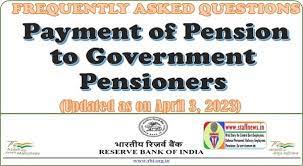CHANDIGARH: Upholding that reservist pension cannot be lower than two-thirds of the pension of a regular soldier having the same length of service, the Armed Forces Tribunal has ruled that the reservist pension also needs to be revised and updated from time to time as is done in the case of regular service pension.
The Tribunal’s ruling comes as a big relief to the fading breed of old “reservist pensioners” of the defence services, who have been denied due upgradation of pension to keep up with the times.
Till the 1970s, defence personnel were recruited on the basis of the ‘colour-reserve system’ of service, which meant that they had to render continuous physical service of about eight years, followed by reserve service of approximately seven years. During the reserve service, they were periodically called for short military capsules and could be mobilised for longer periods in case of a national emergency.
Such personnel were authorised reservist pension after completion of 15 years of combined colour and reserve service. As per regulations, reservist pension could not be less than two-thirds pension admissible to a regular sepoy of the lowest grade.
While the two-thirds protection clause remained in force all throughout, the pensionary revision after the One Rank One Pension (OROP) formula and then the 7th Central Pay Commission saw reservist pensions come down drastically as compared to that of regular soldiers.
For example, as per the latest OROP revision, the pension of the lowest grade of a soldier with 15 years of service was upgraded to Rs 18,807 per month while that of a reservist remained static at Rs 9,000, which is even less than half and much below the applicable two-thirds protection.
The government and the army had contended that the benefit of OROP could not be passed on to reservists since they were excluded from the ambit of OROP.
The Tribunal’s Chandigarh Bench comprising Justice Shekher Dhawan and Air Marshal Manavendra Singh has ruled that even if OROP is not applicable to reservists, the two-thirds protection of the various revisions, including OROP, was to be granted to them since this was the mandate of the rules.
The Bench, in its order made available this week, also observed that reservists are also affected by the same increase in price index as other soldiers and as such their pensions also need to be updated in accordance with various pensionary revisions.
According to experts, the government itself had recommended to the One Man Judicial Committee (OMJC) constituted to look into OROP anomalies, for a revision for reservists at two-thirds of OROP emoluments of the lowest pay grade for soldiers.
The report of the OMJC, which is pending since 2016, has not yet been implemented despite the Supreme Court ordering in December 2022 to decide upon the anomalies within a period of four months.


